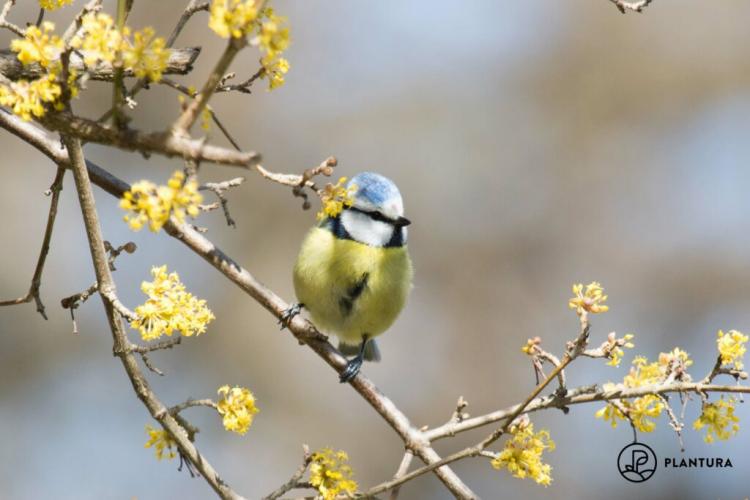Why do birds chirp? Reasons, times of day and seasons & more
Vogelgesang is an acoustic masterpiece. But why do birds actually sing? And why do some birds chirp in the morning, others in the evening or at night? We clarify the reasons in this article.
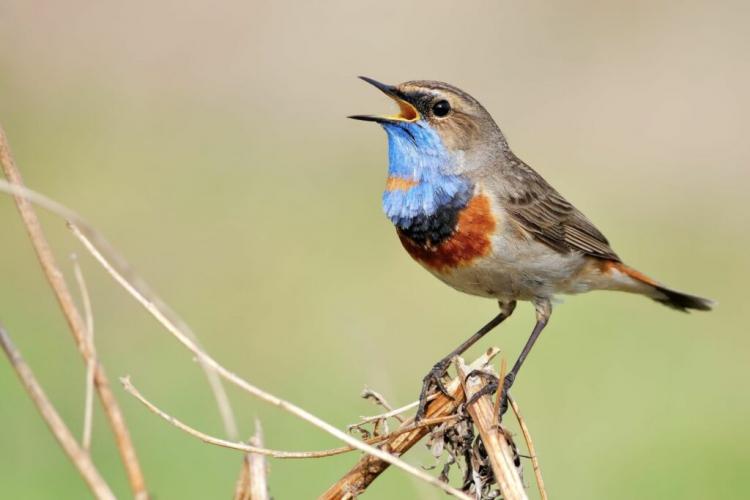
Bluethroat are one of the classic songbirds [Photo: AlekseyKarpenko / Shutterstock.com]
What can bring more joy than a polyphonic bird concert on a summer morning? The lively and spring-like tones often indicate the start of a particularly beautiful and sunny day. But why exactly do birds chirp? Certainly not for our pleasure – even if this is of course a welcome side effect. Besides, why do you hear so many birds in the early morning and only a few in the evening or at night? And what about bird calls in winter? Do they have a different purpose than singing in the spring? We would like to answer all of these questions in our information article.
Why do birds chirp?
Basically, bird calls are a form of communication. Some species have only one or a few bird calls, while others use a wide range of tones and melodies. Basically, a distinction is made between the song of the birds – this often consists of a melodic stanza – and several calls, which are usually composed of only short sounds.
The birdsong can mainly be heard during the breeding season, because it is used to mark out an area and to attract a breeding partner. With most birds, only the males sing, who hope for the favor of a female through a fought for territory and an expressive song. You can find out more about courtship and bird pairing in our special article.
Bird calls , on the other hand, can have far more complicated meanings that even ornithological scholars do not always agree on. There are contact calls with which related birds can recognize each other, begging calls that the young animals utter to get food from their parents, and also special warning calls that are uttered in case of danger, for example to warn conspecifics about predators.
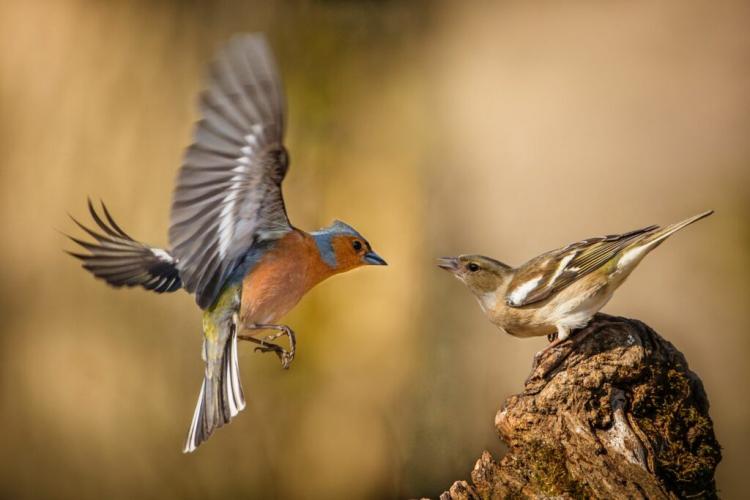
Male birds sing to attract a female partner [Photo: Izzy Standbridge / Shutterstock.com]
Tip : Are you interested in the senses of birds? In our article “Can Birds Smell, Hear & See Colors?” we have prepared interesting facts for you.
Why do birds sing in the morning or in the evening?
Most birds sing in the early hours of the morning. Why exactly this time is so beneficial has been discussed in science for a long time and could have several causes:
1. On the one hand, the sound can spread better in the morning because there is less wind and other air movements than at later times of the day. The birds therefore have the opportunity to let their voices carry on.
2. Another theory is that birds find it harder to forage for food at dawn because of a lack of light and warmth. Insectivorous birds in particular often have to wait a while for their prey to become active. Therefore, they can use the morning time for extensive singing.
3. A final reason for the morning singing is related to the hormone melatonin, which – just like us humans – controls the internal clock of the animals and stimulates the birds to their singing activity in the early morning. In principle, however, it makes no sense if all the birds sing at once, even if there is a perfect time for it – otherwise the chants would overlap too much and no one would be able to make themselves heard. This is why some birds have got used to singing in the evening or at night. And even in the morning hours, the different species of birds intone their song at different times. The common redstart, for example, sings an hour and a half before sunrise, while the chaffinch and greenfinch only start their song with the first rays of sunshine. This phenomenon is also known as the “bird watch”.
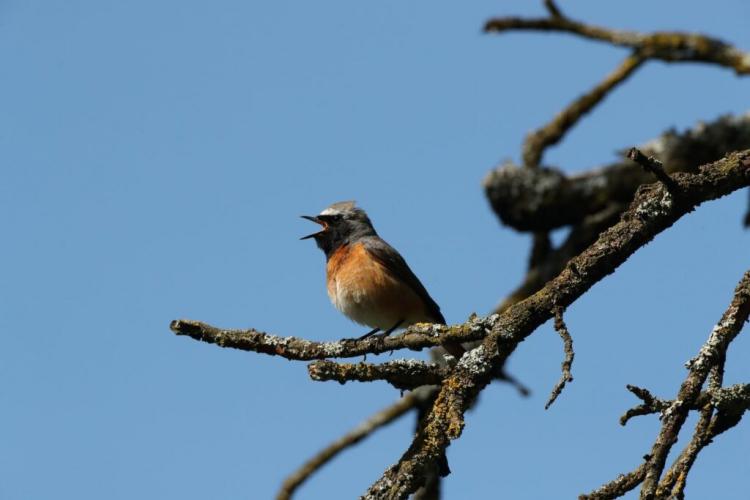
The redstart is literally an “early bird” [Photo: Frank Fichtmueller / Shutterstock.com]
Note: You can find out more about “nocturnal birds” in our special article.
Why do birds chirp in different seasons?
Since the courtship and breeding season – and thus the main reasons for the singing – come to an end in the late year, the bird world seems to become somewhat silent from August onwards. Many of our native migratory birds then leave their breeding grounds and only return to us in spring. Of the remaining standing birds and hawks, some species start singing again in autumn and can be heard well into the dead of winter. This winter song is used to mark out feeding grounds, which are usually somewhat more spacious than the summer breeding grounds. In this way, the birds secure feeding grounds for themselves in the barren winter landscape.
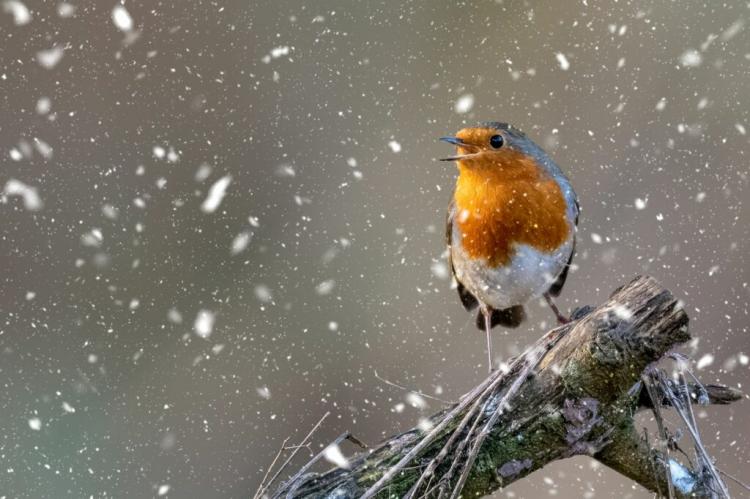
Robins still sing in winter [Photo: Cliff Day / Shutterstock.com]
Note: If you are a beginner who would like to acquire some bird sounds, it would be wise to start with them in the winter months. Since only a few birds are singing at this time, you can slowly approach the topic and slowly add more and more voices to your repertoire in the course of spring. You can find even more practical tips for getting started with bird watching in our special article.





